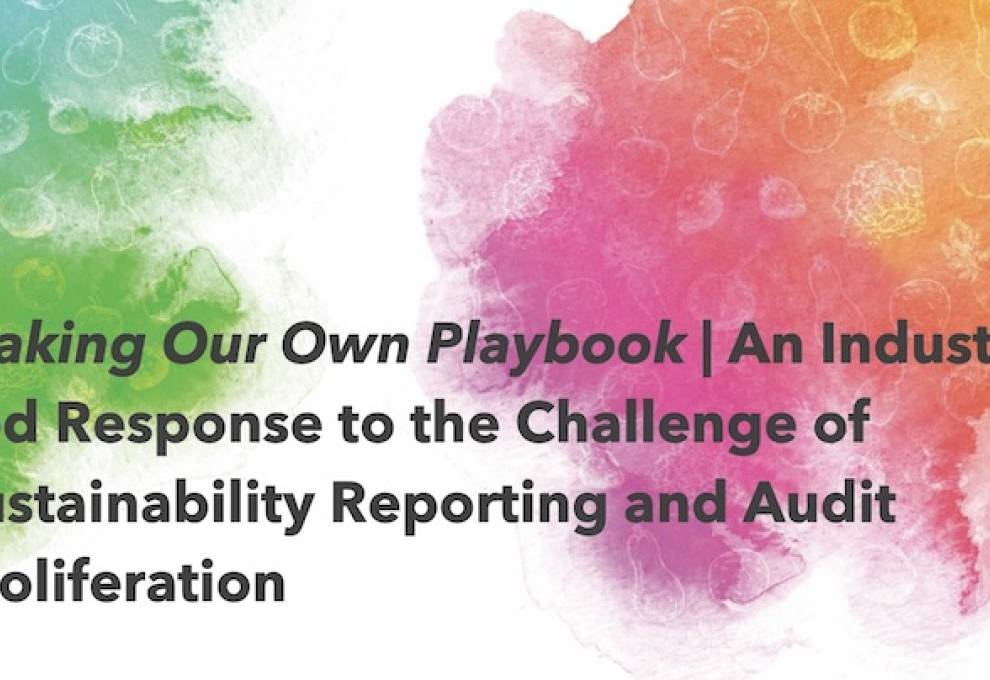
The Canadian Produce Marketing Association (CPMA) has released a pivotal new report, "Making Our Own Playbook: An Industry-Led Response to the Challenge of Sustainability Reporting and Audit Proliferation". The report, which synthesizes findings from an industry workshop held in Montreal on April 8, 2025, confronts the growing challenge of "audit fatigue" and proposes a unified, industry-led framework to bring clarity, consistency, and value to sustainability assurance in the fresh produce sector.
The report identifies a critical issue termed the "Assurance Paradox": a state where escalating demands for sustainability verification from buyers, regulators, and stakeholders lead to a proliferation of audits and questionnaires. This systemic pressure consumes industry resources with the complex demands of reporting, distracting from the implementation of genuine environmental improvements. The result is a system where more auditing activity does not lead to better assurance and can degrade trust.
In response, the workshop findings propose the development of an Environmental Charter, a pre-competitive sustainability assurance framework built on several key principles. The Charter advocates for a metrics-first, not practices-first approach, shifting the focus to quantifiable, outcomes-based data that is valuable for both producers and buyers.
"Our members are deeply committed to sustainable practices, but they are increasingly burdened by a reporting system that is fragmented and inefficient," said Ron Lemaire, president of the CPMA. "This report is our industry's playbook for moving from a reactive to a proactive position. By developing a unified framework defined by the grower community, we can ensure that sustainability metrics are practical, relevant, and drive meaningful outcomes, turning the burden of reporting into a source of innovation and competitive advantage."
The report breaks down the proposed framework across five core sustainability pillars—water, energy, packaging, material use, and land management. It also draws critical lessons from successful models such as the Potato Sustainability Alliance (PSA).
"The workshop brought the 'Assurance Paradox' to life, with participants from across the supply chain expressing a clear and consistent message: they are consumed with reporting instead of focusing on lowering their environmental footprint," said Garland Perkins, principal at Fresh Endeavors Consulting and workshop facilitator. "The strategic shift to a metrics-first, outcome-based framework is critical to resolving this tension. It provides a path to transform reporting from a simple compliance exercise into a powerful tool for improving efficiency and driving real-world progress."
Wyatt Maysey, director of sustainability at Taylor Farms, a workshop sponsor, added, "As producers, we see the fragmentation of reporting requests firsthand. A harmonized, pre-competitive framework like the proposed Environmental Charter allows us to focus our resources on what truly matters: making tangible improvements in our fields and facilities. It enables us to provide credible, consistent data to our customers while using that same data to become more efficient and resilient. This is a win-win for the entire supply chain."
Building on the report's momentum, the CPMA will meet with produce industry leaders at Fall Harvest 2025 to review the report’s key findings and explore actionable next steps to mitigate sustainability and audit reporting risk.
For report, download here: https://cpma.ca/industry/sustainability/executive-summary-sustainability-workshop
Source: Canadian Produce Marketing Association September 16, 2025 news release

